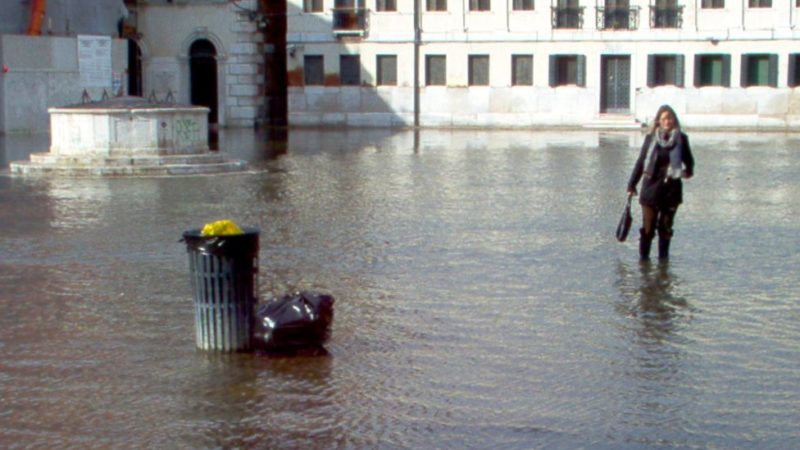Campaigning against climate change must shift its focus from 'better recycling' to saving the human race from a toxic economic system.

The old idea of the “British summer” definitely lost its meaning this year, when sunshine and heat hit these shores for a whopping 6-week period.
Gone were the temperate grey July days, the chilly August nights. This was the hottest summer on record, with temperatures consistently going over the 30C mark in several parts of the country.
Who needs Marbella when you can have Margate, am I right?
But for anyone looking beyond the opportunity to wear a summer wardrobe in Blighty, this is ominous data. And today’s news that British summers could be another 5C warmer by 2070 all the more so.
For many, however, the idea that sweltering heat will reach Britain in 50 years time will feel irrelevant.
That’s because 50 years it’s a very long time. And for some reading this article, a time past their natural life.
What is more, climate change alterations have not been felt in Britain beyond the balmy summer weather. Or at least not to the catastrophic degree it has been felt in the Pacific islands of Nuatambu and Nararo, or in Venice, or in California.
The recent Extinction Rebellion protests has put climate action back on the pages of the British press, but the Conservative government has paid little attention to the protests.
That’s because acting on climate change would force the government to tackle a series of businesses that continue to make a fat profit out of highly damaging practices.
That includes animal agriculture, construction and, of course, fracking.
It is this blind appetite for profits that is the greatest driver of climate change. The cabinet’s negligence – if not collusion – with a voracious system of resource exploitation, without regard for environmental or human consequences, is a travesty.
Incidentally, did you know that Amber Rudd was once the energy and climate change secretary? And did you also know that with that portfolio in hand she was responsible for scrapping green policies such as support for onshore wind and solar energy farms, a national energy efficient homes scheme, and, together with the then business secretary Sajid Javid, selling off Britain’s green investment bank?
Rudd is the current Secretary of State for Work and Pensions. Javid is the Home Secretary. No wonder Extinction Rebellion is far-away noise for these people.
To tackle inaction we need to go beyond the effects of climate change and start talking about the corporate factors thereof. And we need to start drawing the connections between politicians and these environmentally unfriendly enterprises. We need to show how big business makes a profit out of exploiting humans as well as willingly ignoring green practices (which could make a slight bump in the shareholders’ dividends). In sum, we need to talk about capitalism.
This is the way the world ends, not with a bang but a shopping spree.
The photo of our times, by @ClaudiaManzoPh pic.twitter.com/1CqkqQLkgS— GeorgeMonbiot (@GeorgeMonbiot) November 25, 2018
And, to put it bluntly, we need to tackle this idea that it is easier to imagine the end of the world than to imagine the end of capitalism.
Extinction Rebellion currently demands three things: That the government publicly acknowledges the existing crisis, that it acts immediately to reduce carbon emissions to a net zero by 2025, and that a Citizen’s Assembly is created to create a sense of accountability over governmental action.
This is a good start. But if we fail to pinpoint the systemic problem we could end up with a series of mediocre policies that have little effect at this stage.
In this world of nearly 8 billion, it is paramount that we defend the right of humanity to exist, the right of it to thrive in freedom and equality across borders, and, above all, the right of it to have more rights than capital.
Because the point should not be to change the individual minds of a few million on the way they recycle (though that is never a bad thing). The point should be to mobilise billions of people worldwide in exercising their power over corporations and governments responsible for most of the ongoing environmental damage.
Otherwise, we might well give up on the human race now, altogether.
The whole situation reminds me of a Guardian article from earlier this year profiling a series of couples that decided to stay childless due to climate change.
Tragically for some, it seems, it is still easier to imagine the extinction of humanity than the end of capitalism.
Joana Ramiro is a reporter for Left Foot Forward. You can follow her on Twitter for all sorts of rants here.
Left Foot Forward doesn't have the backing of big business or billionaires. We rely on the kind and generous support of ordinary people like you.
You can support hard-hitting journalism that holds the right to account, provides a forum for debate among progressives, and covers the stories the rest of the media ignore. Donate today.



